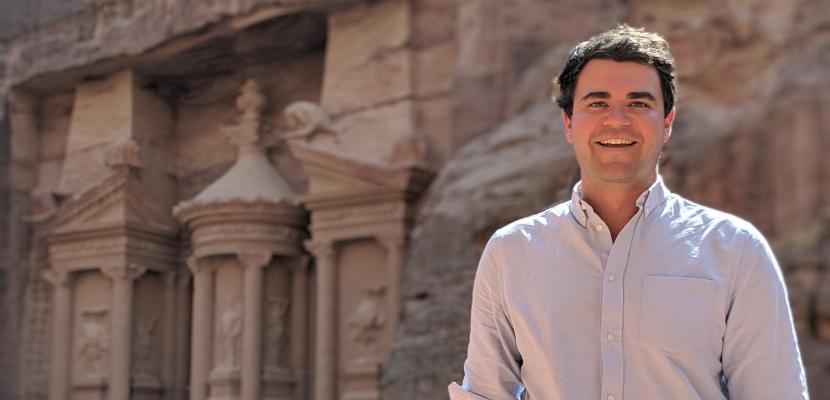
Alexander Smith spends his days on the digital age’s version of the frontline, fighting to provide an internet that is open, safe and accessible.
Although many will never hear his name, the work he does in Google’s Government Affairs and Public Policy department impacts internet users throughout the Asia Pacific region.
When Smith first graduated, he wasn’t preparing for a career in the corridors of power engaging in the high level of diplomacy required to strike balance between freedom of information and user safety.
He was merely answering a call heard by the brightest young scholars, to explore the globe while furthering their study, that can be traced back to Charles Darwin’s famous journey on the Beagle, and beyond.
Smith completed a double degree in law and international relations as a Vice Chancellor’s scholarship recipient at Bond University in 2010. He immediately found work at the United Nations before embarking on a stint at a prominent Sydney law firm.
His passion for learning burnt brightly and when the Bond University Global Alumni Scholarships were introduced in 2012 to offer financial support to outstanding graduates to undertake postgraduate studies at a world-class institution based overseas, he was quick to apply.
Smith became the first of 26 scholarship recipients who have attended the likes of Columbia University, University of Cambridge, Harvard University, Tsinghua University and University of Oxford.
“I never imagined I would get to study at a place like Cambridge and I saw it (the Global Alumni Scholarship) as a fantastic opportunity, so I went through the process and honestly Bond could not have made it any easier,” he said.
“It was critical for me to be able to take up the opportunity at Cambridge.”
He immediately fell in love with the University’s history and customs, rowed for his college, and indulged his thirst for knowledge in courses taught by giants of his field.
“The experience itself was incredible, the Uni is 800 years old, it is impossible not to feel the sense of history,” he said.
“Charles Darwin studied there, some of the biggest scientific discoveries were made there. And to get access to some of the most brilliant legal scholars in the world, is an unparalleled experience.”
He graduated with a Masters of Law and a global network of contacts in places like Brazil, Panama, the UK and throughout Europe.
He then joined the Department of Prime Minister and Cabinet as a public policy advisor before serving a year as the inaugural Associate to the Hon Justice M Perry in the Federal Court of Australia.
From there it was off to Harvard to complete his Masters of Public Policy where he determined his calling lay at the intersection of law, public policy and negotiation and decided to pack his skill set and head to Silicon Valley.
“It (Google) is a company that is at the forefront of global tech and has led the way to make information accessible for everyone, it is a huge mission,” he said.
“We are trying to protect access to an internet that is open to everyone and the scale at which Google operates, is truly hyper scale.
“Small tweaks made to billion-user products can make a huge difference to people around the world.”
Smith said the world had entered a critical time for the digital economy, driven by a new generation of digitally native consumers, that had raised serious questions about relationships between consumers and information providers.
“Here is what we know about trends on the internet: global youth are the vanguard, they won’t grow up to behave like we do online, we will eventually learn to behave like they do,” he said.
“It is a seismic shift, digitally native and socially native people are changing the game.
“They are moving away from what we would consider authoritative and towards information that is more peer validated.
“That brings so much opportunity to share incredible creativity, but it also raises many questions about online safety.
“How do you test the veracity of what you are learning or hearing?
“Google blocks 40 billion spam sites a day and when you realise this scale, you need relationships between industry and Government to keep people safe.
“This is where my international relations degree from Bond has really weaved its way into my work.”

